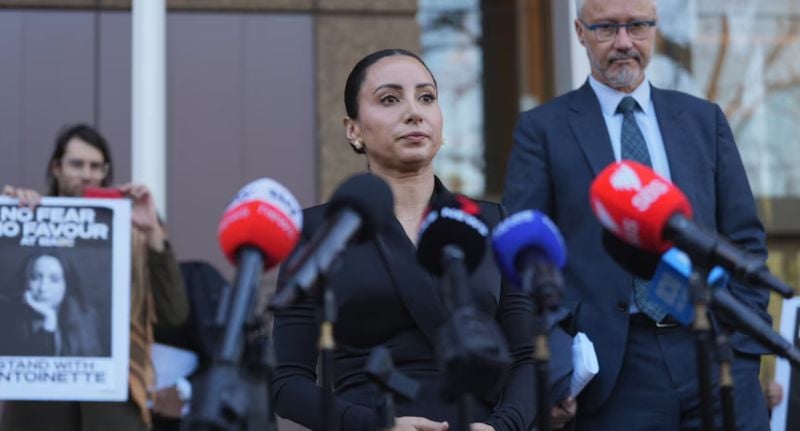As the dust begins to settle on the Federal Court’s finding that the ABC acted unlawfully in its termination of Antoinette Lattouf, attention now turns to how Australian media companies will respond.
Yesterday, Justice Darryl Rangiah found the broadcaster’s decision to fire Lattouf’s in December 2023, in part due to her political views regarding the war in Gaza, was illegal.
“I have found that the ABC contravened section 772(1) of the Fair Work Act by terminating Ms Lattouf’s employment for reasons including her political opinions opposing the Israeli military campaign in Gaza,” Justice Rangiah said.
Addressing the social media post that triggered the dispute, he noted that ABC Head of Radio Chris Oliver Taylor was aware Lattouf had not been directed to avoid commentary on the conflict.
But, what exactly does the judgement mean for not only media companies, but journalists as a whole?
Mediaweek spoke with lawyer Nicholas Stewart, who is a partner at Dowson Turco Lawyers, to learn more.

Mediaweek: Does this give journalists carte blanche to post what they want on social?
Nicholas Stewart: Not really. While every case falls on its facts, journalists (and all employees) are bound by a contract with their employer. Their employer is also bound by the same contract.
Most employment relationships are governed by the adverse action provisions of the Fair Work Act 2009 (Cth) which, among other things, prohibits adverse action by employers (such as discriminating against an employee because of their political opinions or beliefs).
The Federal Court found that in the context of Ms Lattouf’s belief that the media was attempting to deflect attention from atrocities perpetrated by the Israeli armed forces, her opinion that the media should report about the war accurately and impartially was a “political opinion”.
The Federal Court also determined that Ms Lattouf held a political opinion “questioning the authenticity of footage of demonstrators chanting anti-Semitic chants at the Sydney Opera House”.
The Court understood this allegation to be that Ms Lattouf held an opinion that media reports claiming that demonstrators’ chants were anti-Semitic were unverified.
In the context of her opinion that the media should report on the Israel/Gaza war accurately and impartially, the Court said it considered that her opinion can be described as a “political opinion”.
The Court found that the Australian Broadcasting Corporation (the ABC) contravened s 772(1) of the Act by terminating the employment of Ms Lattouf for reasons including that she held a political opinion.
This is consistent with the existing law of adverse action. The ABC also contravened its Enterprise Agreement by failing to give Ms Lattouf an opportunity to respond to allegations of misconduct made against her.
Relevantly, Ms Lattouf was given what the ABC said was a “direction”, not to post anything on social media that would suggest she was not impartial in relation to the Israel/Gaza war.
The Federal Court determined, however, that Ms Lattouf was “merely provided with advice that it would be best not to post anything controversial about the war. … qualified by an indication that posting fact-based material from a verified source would be fine.”
This is an important finding because if the ABC did not want Ms Lattouf posting anything to her social media, it should have been clearer in its “direction.”

The ABC’s Chris Oliver-Taylor
MW: Are casual and short-contract staff subject to the same rules as ongoing full-timers?
NS: Casual and short-term contract staff have the same rights as permanent employees under adverse action laws. Ms Lattouf was a contractor. I wonder if this incident could have been avoided if the ABC had been clearer in its “direction” to Ms Lattouf but I am also concerned that Ms Latouf’s social media post that triggered her termination was factual in nature (it related to investigation findings by Human Rights Watch) and I would like to think journalists are not being told by their employers not to post about factual matters on their social media.
MW: If public openness and transparency is core to a journalist or presenter’s brand, what actions can they take to protect themselves from action by employers?
NS: I think the best thing journalists can do is negotiate with employers from the outset about what they can post on social media. But in Ms Lattouf’s case, I’m not sure what she could have done. She acted consistently with the advice (not a direction) from her employer, yet she was terminated.
The Court found that the complaints made to the ABC by members of the public about Ms Lattouf’s employment may have been relevant to the question of whether an employer’s decision was for reasons which include Ms Lattouf’s political opinions.
The Court said “if an employer terminates an employee’s employment at the behest, urging or encouragement of a person outside the employer’s organisation, the termination may be “for” a relevant attribute.”

Hugh Marks
MW: Will media companies be able to interpret the ruling in their own way?
NS: The Lattouf decision is a wonderful exposition of the law of adverse action. If anything, it gives guidance to employers about the risks of claims like Lattouf’s where employees of employers large and small will naturally (particularly now) have opinions about international wars and human rights.
MW: Can rulings like this be backdated? If so, could we see more people coming forward?
NS: This decision confirms the law as it is written. It expounds it with reference to Ms Lattouf’s circumstances and consolidates earlier decisions about what must be proved by an employee to win an adverse action claim of this kind.
I think it will certainly educate the community around what is considered a political belief, but I think it will also help employers manage employees and contractors who have high profiles outside of their employment.
